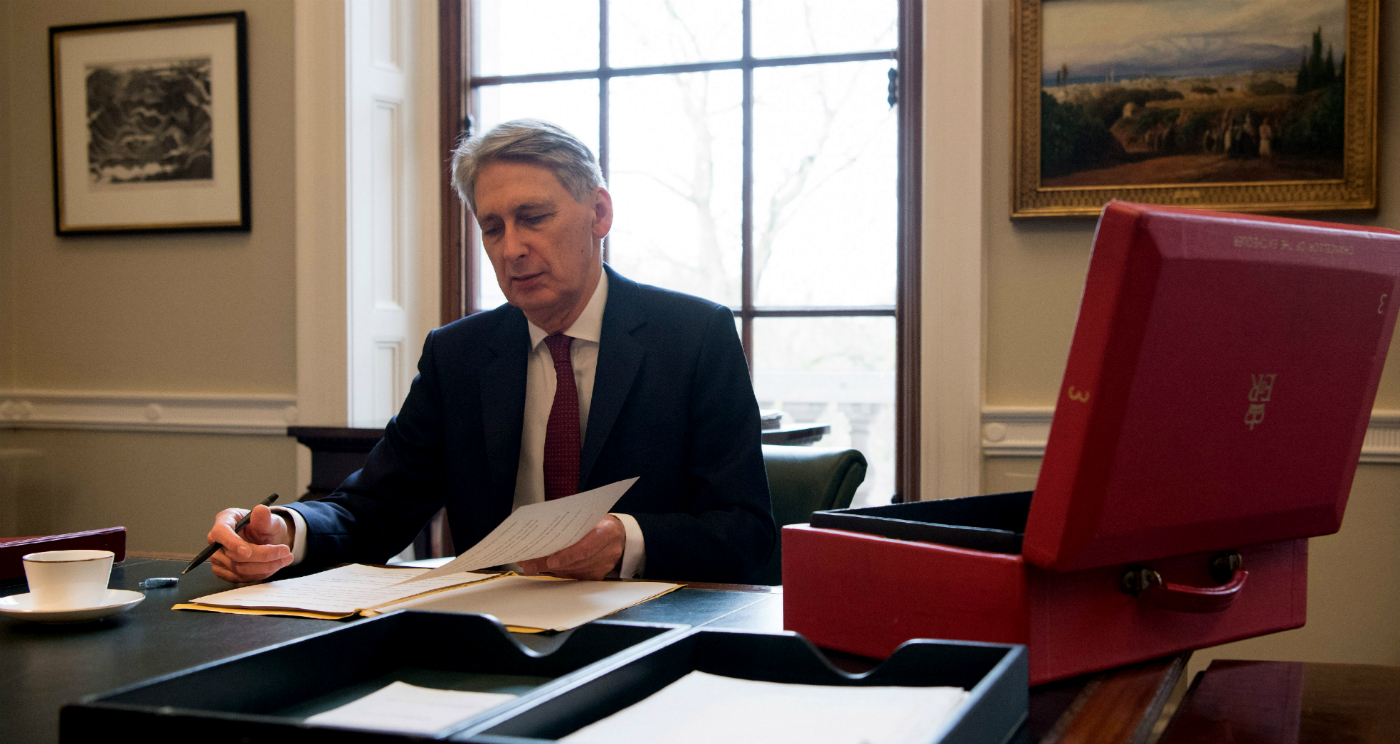Spring Statement 2019: the key points
Chancellor Philip Hammond pledges £26bn war chest in the event of no-deal Brexit

A free daily email with the biggest news stories of the day – and the best features from TheWeek.com
You are now subscribed
Your newsletter sign-up was successful
Chancellor Philip Hammond has delivered his 2019 Spring Statement, promising to spend £26.6bn to boost the economy if MPs vote to leave the European Union with a deal.
The statement, which took place in the Commons this afternoon, saw Hammond present what The Daily Telegraph calls a “low-key mini-Budget” in order to “not create more difficulties for the Government as it struggles to finalise a deal with the EU”.
Hammond revealed that the Office for Budget Responsibility expects UK economic growth to slow to just 1.2% in 2019, a low not seen since the 2008 financial crisis, in the wake of a no-deal Brexit.
The Week
Escape your echo chamber. Get the facts behind the news, plus analysis from multiple perspectives.

Sign up for The Week's Free Newsletters
From our morning news briefing to a weekly Good News Newsletter, get the best of The Week delivered directly to your inbox.
From our morning news briefing to a weekly Good News Newsletter, get the best of The Week delivered directly to your inbox.
As a result, he seemed keen to discourage MPs from allowing a no-deal scenario to manifest, claiming the decision to reject Theresa May's Brexit deal for a second time had left a “a cloud of uncertainty hanging over our economy”.
Here’s a look at Hammond’s Spring Statement, ranging from his plans on tax to scientific research.
The economy
The chancellor said the UK economy remains robust and has “defied expectations”. It has grown for nine years in a row, which is the longest of any G7 member, The Guardian reports.
A free daily email with the biggest news stories of the day – and the best features from TheWeek.com
“And it’s expected to keep growing for the next five years,” he added, claiming that in 2020 he expects growth of 1.4%, and 1.6% in 2021, 2022 and 2023, with 600,000 new jobs created in the UK by 2023.
On borrowing, the 2018/19 deficit will be 1.1% of GDP, Hammond said, down £3bn from the 1.2% expected in the October budget.
But shadow chancellor John McDonnell claimed the goalposts were being shifted.
“On the deficit, he’s boasting about the deficit - he’s not eliminated the deficit as we were promised by 2015,” McDonnell told the BBC. “He’s simply shifted it on to the shoulders of headteachers, NHS managers, local councillors and police commissioners and, worst of all, onto the backs of many of the poorest in our society.”
Hammond had accused McDonnell of “living in a parallel universe” for predicting the UK would fall into recession.
The chancellor added that the country has been on “a journey of recovery” since the Conservative Party took power in 2010, claiming that the “squeeze on public spending” is coming to an end.
The no-deal Brexit threat
Hammond used his Spring Statement to warn that a no-deal Brexit would deal a “significant” blow to economic activity in the short term, and that “we are not where I hoped we would be today”.
He claimed that the “£15.4bn headroom in the public finances that could be used in a no-deal Brexit has increased to £26.6bn”, The Guardian says, and added that tax and spending responses and Bank of England policy changes could “only ever be temporary to handle a no-deal Brexit” in order to avoid higher levels of inflation.
“The idea there is some readily available fix to avoid the consequences of a no-deal Brexit is just wrong,” Hammond said.
Minimum wage
Hammond also launched an official government review into “evidence on the employment and productivity effects of minimum wage rates”, in order to facilitate “sustainable pay rises for millions of British workers”.
The National Minimum Wage will rise to £8.21 from April.
Travel
The UK will “begin to abolish the need for paper landing cards at UK points of entry” for certain countries, the chancellor said, calling the move a “signal to the world to our commitment to Global Britain”.
“We will allow citizens of the USA, Australia, New Zealand, Canada, Japan, Singapore and South Korea to use e-gates at our airports and Eurostar terminals, alongside the EEA (European Economic Area) nationals who can already use them,” he said.
Technology
Hammond said the government will “make technology companies pay their fair share” and protect consumers from online harm.
“This government will lead the world in delivering a digital economy that works for everyone,” he said.
Period poverty
Reports last week suggested that the chancellor would announce plans to end “period poverty” in English secondary schools in his statement.
And he duly obliged, unveiling a scheme to fund free sanitary products for girls in secondary schools and colleges in England from the next school year.
Knife crime
Hammond pledged an additional £100m to target knife crime in the wake of spiralling rates of stabbing across the UK.
The Daily Telegraph reports that £80m of funding will come from the Treasury while the extra £20m will be reallocated from Home Office budgets.
BBC political editor Laura Kuenssberg called the funding pledge a “political win” for Home Secretary Sajid Javid.
Hammond said the new funding will “ensure a lasting solution to this problem”.